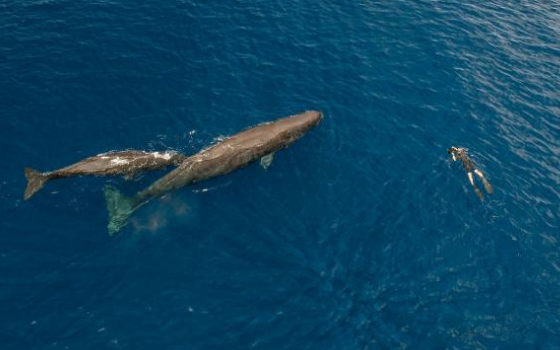Scientists know sperm whales as the ocean's largest toothed predators. They have the biggest brains of any known animal, can weigh up to 45 tons, and have been observed displaying humanlike qualities, such as curiosity and playfulness. But despite their size and their expressiveness, sperm whales remain one of the ocean's biggest mysteries. Do they share complex ideas? What are the dynamics in their family groups? And what goes on in those giant brains?

Skerry lives in Maine, where he practices free diving in cold Atlantic waters, slowing his breathing sometimes for up to three minutes. Holding one's breath is as much the work of the mind as it is the lungs. In addition to staying in good physical shape, Skerry, 56, does meditation exercises to condition himself not to panic when his blood pressure drops and his lungs scream out. It's often in those moments when photographic magic happens. Skerry is partway through a three-year story project on whales for National Geographic. It has taken him all over the world: to Alaska to photograph humpbacks, to Canada for belugas, and to Norway for orcas.












